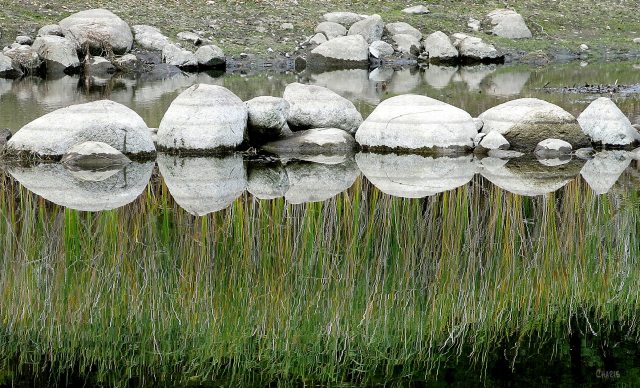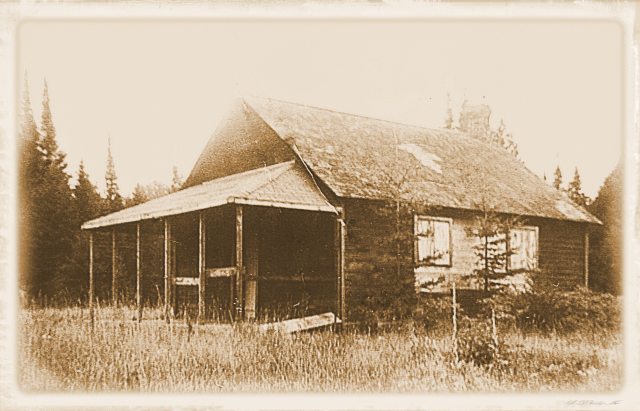
Foster Daughter
Sadie tied her hair with twine;
Helen wore high heels in a snow storm.
Sadie whistled to the birds in the willow tree;
Helen bought a budgie at Simpson Sears.
Sadie sat on a stump scraping hides with a blade;
Helen sat on a lawn chair spraying the grass with Raid.
Helen placed rose-shaped soaps on the toilet tank;
Sadie hung rusty traps on the kitchen door.
Helen served eclairs for tea;
Sadie served Spam for dinner.
Helen read Chekhov and Dickens to me;
Sadie asked me to read the mail to her.
And now, my two mothers,
I sit here on the steps,
jewelled watch on my wrist,
beaded moccasins on my feet,
and wonder who I am.
I wrote this poem after fostering several children from Indigenous families. Some were “status” and some were not, even though they were half-siblings. I wondered what this move back and forth between cultures was like for them.
But this was also my own experience. When people read this poem they assume “Helen” was the foster mother. In my case, “Sadie” was more like the substitute mother I spent the most time with. My mother alternated between working long hours and recovering from frequent illness. I went to live with my grandmother as an infant before my mother was released from the hospital and I bonded with her. Grandma was my main caretaker in early childhood and after I started school our extended multi-generational family lived together until I was 16.
Grandma grew up in the area now known as Algonquin Park, miles from the nearest road. Her formal education ended when the school burned down after she attended sporadically for two or three years. Reading remained a struggle for the rest of her life.

Her father hunted and trapped to support his family. He met her mother in an aboriginal village. We always assumed she was of indigenous extraction. Great Grandma taught my grandmother how to live off of the land, the importance of community and imparted to her a deep reverence and connection with creation.
My father told me stories of how his grandmother chewed hide to make moccasins for all her grandchildren, how she was a crack shot, and how she knew every plant and every sound in the forest. She raised ten children to adulthood without access to modern medicine, relying on herbs, raw honey, and prayer.
Dad learned that her father, a logger who spent months in the bush himself, abandoned her after her mother died. She was sent to live with a foster family in New York who treated her, as many unclaimed children were treated in those days, as a slave. She slept in the barn and did chores instead of attending school with the other children. She never did learn to read.
Ethel didn’t talk much about her early childhood, but something about her mistreatment prompted her to take the risk of running away. With only her dog as a companion, she set out to look for her father. All she knew was that he lived in northern Ontario.
She must have been a resourceful kid because she lived for several months on her own in the northern woods before some Algonkin people found her, took her in and raised her as one of their own. Eventually, when she was a young woman, she met my grandfather when he came into the camp carrying a buck over his shoulders to share. His size, strength, and generosity impressed her. She left with him, but the ties to the community remained and their way of thinking and doing life was passed on to the woman who shared in raising me.
On a whim, I searched for Great Grandmother’s birthplace when I was labeling old photos for my father. I was shocked to learn that not only was she entirely white, but she was a descendant of American royalty – the first Pilgrims in Massachusetts. I’m not part native Canadian after all. My straight dark hair and high cheek bones came from elsewhere, but I still have a deep love and respect for Indigenous people and the role they played in our family history.
I wonder if Canadians are less prone to put more weight on individual concerns than community concerns than American culture does because of the stronger positive influence of indigenous connection in early days. It made no sense whatsoever to my grandmother or great grandmother to see perfectly good food thrown away when people were hungry, for example. It would be like one person feasting alone after a successful hunt while hungry villagers looked on. In a harsh environment, community is essential to survival. It’s called caring.
Grandma felt the same way about possessions. She never understood why everyone on the block needed to own a ladder when she never saw more than one person at a time using a ladder. She just helped herself to “the” ladder when she needed it. The fact that it was stored in the neighbour’s garage turned out to be problematic – more for the neighbour than Grandma. She had no problem with friends and neighbours using whatever she had and didn’t understand why they were so stingy. She was incredibly generous and sheltered anyone who needed help. Her boarding house in Calgary became a community itself.
I think Grandma could hear the trees weep and the rivers wail when short-sighted resource-gathering practices hurt them. Even when she was in her 80s she begged my dad to set up his trailer in the middle of nowhere so she could revive herself in nature on a solo retreat. He argued it wasn’t safe, so she went to work as a camp counselor instead.
One day she taught her cabin of girls how to track by circling around and following the search and rescue people who had been sent out to look for them when they failed to return on time. “On time” was another problem. She was as likely to show up hours early as hours late.
My mother was definitely European. She was accustomed to excelling in competitive environments and creating order out of chaos. Grandma thrived in let-it-be chaos. In fact, she was often the source of it.
Growing up with two mothers who thought differently and had different priorities and values confused me at times, but I learned early there is more than one way to perceive a situation and that love overcomes a multitude of misunderstandings so people can honour each other’s strengths and live in harmony. I am richer for that inheritance.
Today on National Aboriginal Day (and soon to be known as Indigenous People’s Day) I thank the First Nations people who fostered my disadvantaged grandmother and enriched my life as a result. You laid stepping stones for us all and I am grateful.


How interesting! Your experiences, though in some ways difficult, seem to have enriched and nourished the person you have become. Thanks so much for sharing!
LikeLike
Thanks, Lois. So many stories from the past are being unlocked and hidden secrets revealed these days. In the past month I have found my mother’s family history in Russia and going back to the Reformation in Germany, and this week my husband learned about his family from a relative after we thought all documents had been destroyed in WWII. I have to ask what the Lord is up to now.
LikeLike
As ever, you have a “way” of taking memoirs and unfolding them that makes them soooo intriguing. What a legacy you have been left, to glean from both perspectives. I can see from these genes that you have been given, that your Giftings are unique and varied. You are a Singer, a Painter, a Writer, a Poet and a Teacher ….and only those that I am aware of …lol
You are a treasure of wealth, both in the natural and spiritual and your ability and desire to share is such a treat….But, most of all…U are “U” …this is who I enjoy and appreciate …Hugs xx
LikeLike
Thank you. I treasure your friendship, Cathy.
LikeLike
Thank you. I treasure your friendship, Cathy.
LikeLike
Charis, thank you for sharing your roots. The influences in our early life, affect how we relate today. Your great grandmother brought important character traits into your life. Even if she did not have indigenous blood, she was adopted by them and carried their perspective with her. One thing that stood out while reading your post, was the gift of faith in God. You have a heritage of believers, who I’m sure prayed for the generations to come. God has something very special for you and your husband and your descendants. Blessings!
LikeLike
Thank you, Hazel! Blessings on your home, your bread and your water! You are one of the most encouraging people I have met in this cyberworld. You are highly loved and respected!
LikeLiked by 1 person
Thank you! 🙂
LikeLike